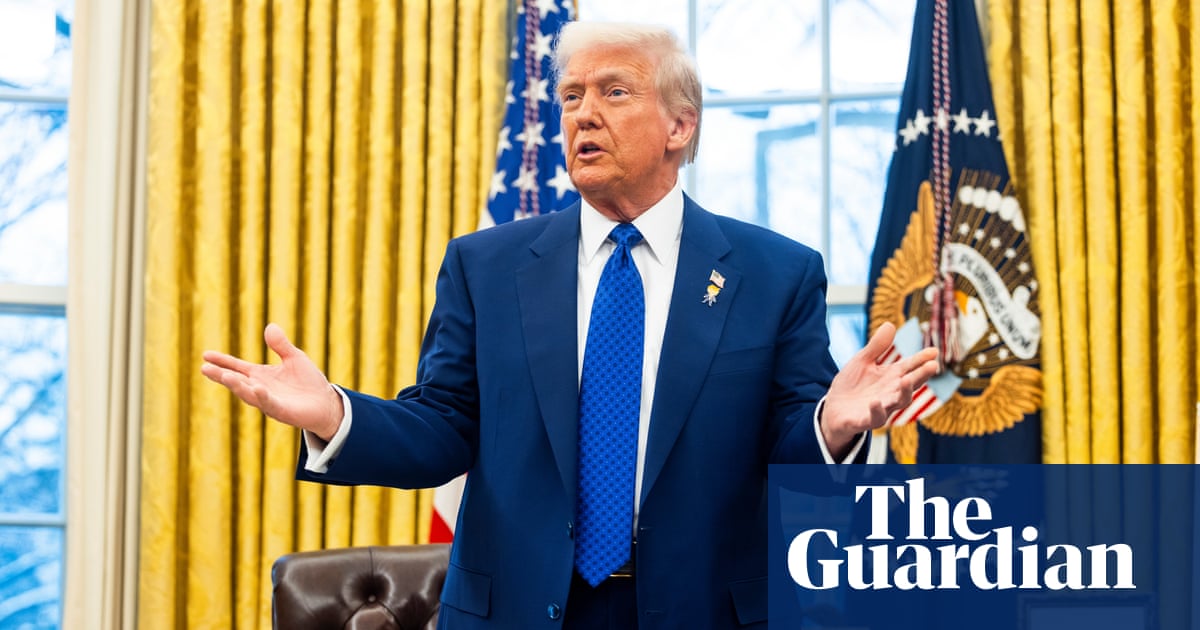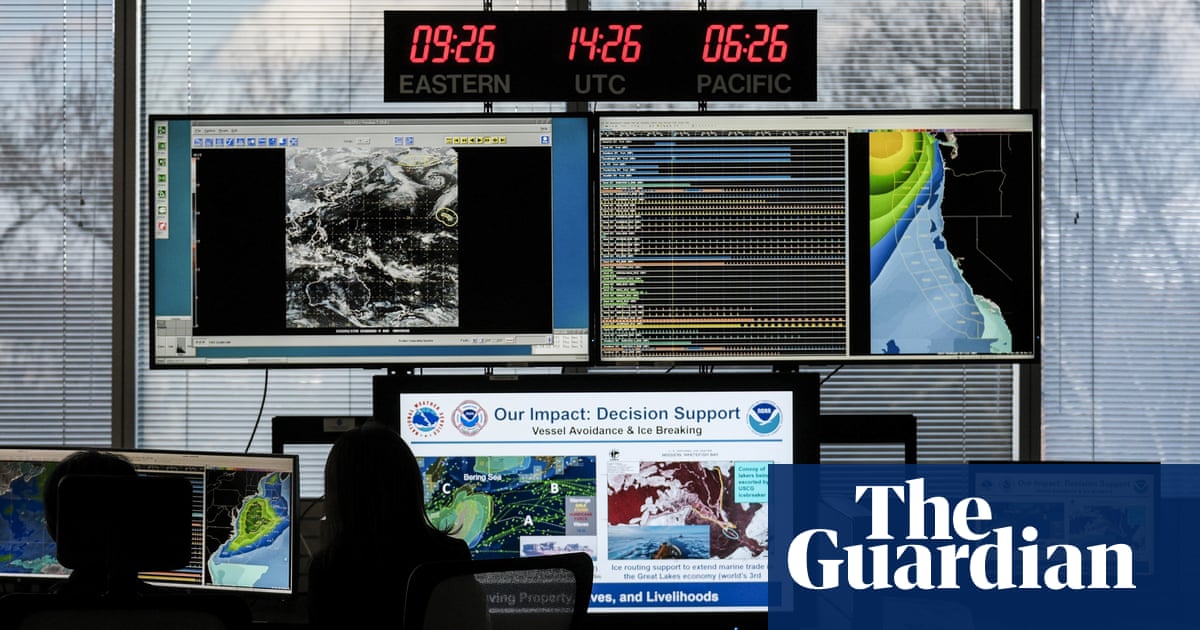During the first Trump administration, Mike Pence, the vice-president, pledged hundreds of millions of dollars, mostly through USAid and the state department, to help Christians and other religious minorities who were persecuted by Islamic State and – in the case of the Yazidis – suffered a genocide.
But under the second Trump administration, the same figures who championed the rights of religious minorities have fallen silent or actively participated in the destruction of USAid, cutting crucial aid to support the same communities they once helped – who now feel abandoned by the US.
That has had an immediate effect on the ground, according to activists and current and former USAid employees, who said the cutoff in aid has paused work among still traumatised communities and sown a feeling of betrayal 10 years after the genocide.

In Sinjar, the Iraqi town where thousands were massacred by IS, the freeze has halted operations to provide water and electricity, primary healthcare centres, the construction of schools, community centres and other basic infrastructure at a time when thousands of Yazidis are returning home after more than a decade in Syrian refugee camps. In one case, electricity transformers already delivered had to be put into storage because of the stop-work order, leaving a community without reliable electricity.
“It was a shock that USAid was frozen for helping those communities that the US had helped to survive. [Before], US help was omnipresent,” said Mirza Dinnayi, a prominent Yazidi human rights activists who runs the House of Co-Existence (HOC) multicultural community center in Sinjar.
He said that USAid, which provided the vast majority of humanitarian funding to the area, had been was a “pillar of stabilisation and normalisation”.
“They had a crucial role in his first administration for recognising the Yazidi genocide and supporting US aid to help Iraq,” said Dinnayi. “Minority rights and religious freedoms were supported in the first administration. I’m wondering why the second administration is not aware about that.”

Charities supporting Christian minorities, such as Catholic Relief Services (CRS), have also been directly affected by the work stoppage, including their programs in Iraq’s Nineveh Plains area and among Christian communities, according to people familiar with their work in the area. CRS, a top recipient of funds from USAid, is facing up to 50% layoffs this year and has begun shutting down programs that account for half of the organization’s $1.5bn budget, according to an email obtained by the National Catholic Reporter.
“I see a lot of harm in the abrupt way that this assistance has stopped,” said a former USAid employee in Iraq.
Meanwhile in Washington, a coterie of conservatives – many with former ties to Pence and USAid – have now allied with Elon Musk’s effort to take down the agency.
One of them is Max Primorac, a senior research fellow at the Heritage Foundation’s Margaret Thatcher Center for Freedom, who authored Project 2025’s chapter on USAid recommending a blueprint to downsize the agency. He is set to testify before the House foreign affairs committee on Thursday at a hearing titled the “USAid betrayal”.
Primorac did not respond to a request for an interview sent through the Heritage Foundation.

Primorac is one of a number of prominent conservatives who supported Pence’s initiative to support religious minorities but have now gone on record backing the aid freeze. Others include Pence himself, vice-president JD Vance, secretary of state Marco Rubio, and Pete Marocco, the Trump ally and USAid skeptic who nonetheless protected funding to religious initiatives under Pence. Marocco even reportedly led operations with his Patriot Group International to exfiltrate Yazidis in 2016.
From late 2018 to early 2019, Primorac traveled to Erbil and northern Iraq as Pence’s special envoy, “overseeing a multi-agency genocide recovery effort to assist religious minority returns”, according to his current biography on the Heritage Foundation’s website.
Colleagues said he arrived with a dim view of USAid but that he came to support at least some of the efforts the agency was making in the field.
“He had a couple of visits to areas where we worked and I think that changed him a bit in a positive way,” said a USAid employee.
Now, the person said, “for someone who really believed in his mission supporting religious minorities, he does not seem to be paying attention or advocating for a way forward.”
Primorac later boasted that he had led a “$400m counter-genocide program… to spur the return of Iraqi Christians to their ancient homeland” and excoriated the Biden administration for turning its back on Iraq’s “traumatised” Christians.
“Under the Trump administration, I led a counter-genocide program in Iraq to help Christian and Yazidi victims recover from IS’s campaign of extermination,” he wrote in another article for Newsweek. “We provided these traumatized religious minorities with humanitarian aid, [and] psycho-social help.”
Now he has become one of the leading voices calling for the agency’s dissolution, authoring a recent Fox News editorial “how USAid went woke and destroyed itself”. An advance copy of his testimony to the House set for Thursday did not reference his work in Iraq.
Former colleagues say they share some of Primorac’s criticisms of USAid but were perplexed by his full-scale repudiation of their work, the programs he previously cooperated with.

“If we are going to achieve meaningful reform in the foreign assistance system, we need honest dialogue, and it’s important for me to acknowledge that I share some of his critiques about USAid,” said a person who leads a major USAid funded project in Iraq.
“I only wish that [Primorac] would approach the conversation in a similar way, acknowledging all of the great work that USAid has achieved – especially in Iraq.”
The change reflects how top Republicans are hedging their views under the Trump administration and a campaign led by Musk to eviscerate the agency, which he has called “criminal” and “corrupt”.
Current and former USAid members in the field said that they have heard nothing from their former supporters in the US, and have effectively been cut out of systems that would give crucial information on budgets and projects meant to support communities.
“It’s quite puzzling, to be honest,” said one former USAid employee in Iraq.
Meanwhile, the onslaught in Washington has continued. At the International Religious Freedom Summit last week, vice-president JD Vance denounced USAid for promoting “atheism” while boasting of “bringing relief to Yazidis, Christians and other faith communities facing genocidal terror from Isis” in the past.
“It was perplexing to hear the vice president champion these initiatives while, at the same time, funds for efforts like these are literally being turned off,” wrote Adam Nicholas Phillips, the lead administration official at USAid working on faith-based partnerships during the Biden administration.
“Maybe the attacks on USAid are just misinformed and will be righted. Maybe there is a bold plan to invest in foreign assistance. I take administration officials at their word and I’m praying these decisions are reversed with haste.”

 German (DE)
German (DE)  English (US)
English (US)  Spanish (ES)
Spanish (ES)  French (FR)
French (FR)  Hindi (IN)
Hindi (IN)  Italian (IT)
Italian (IT)  Russian (RU)
Russian (RU)  4 hours ago
4 hours ago






















Comments